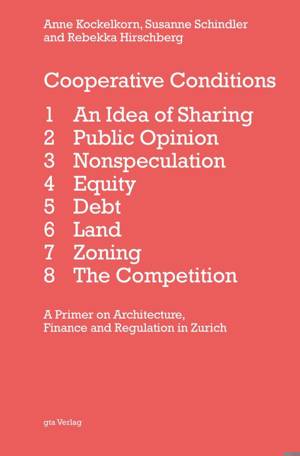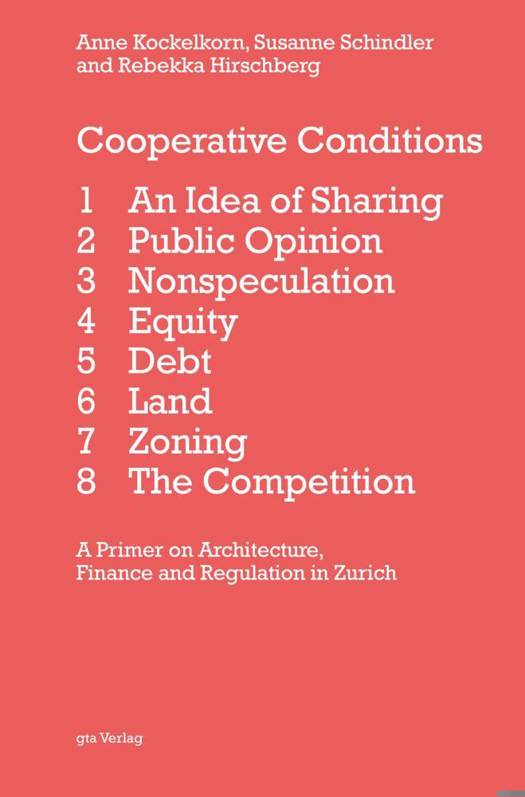
- Afhalen na 1 uur in een winkel met voorraad
- Gratis thuislevering in België vanaf € 30
- Ruim aanbod met 7 miljoen producten
- Afhalen na 1 uur in een winkel met voorraad
- Gratis thuislevering in België vanaf € 30
- Ruim aanbod met 7 miljoen producten
Zoeken
Cooperative Conditions
A Primer on Architecture, Finance and Regulation in Zurich
Anne Kockelkorn, Susanne Schindler, Rebekka Hirschberg
Paperback | Engels
€ 39,45
+ 78 punten
Omschrijving
Recent cooperative housing projects in Zurich have become icons of architectural design internationally. But what makes innovation in nonprofit housing possible within a largely for-profit real estate market? What has enabled Zurich's lasting commitment to nonspeculation for more than one hundred years? How does built architecture partake in these processes - and how does its partaking expand the definition of architecture?Cooperative Conditions answers these questions in a systematic investigation of eight conditions that have allowed Zurich's cooperative housing to thrive under the principles of public benefit, or Gemeinnützigkeit. By analyzing specific financial and regulatory instruments, their history, and their intersection with the built environment, this primer shows that the exceptional quality in Zurich's cooperative housing is possible because of, not despite, the commitment to nonspeculation.
Specificaties
Betrokkenen
- Auteur(s):
- Uitgeverij:
Inhoud
- Aantal bladzijden:
- 312
- Taal:
- Engels
Eigenschappen
- Productcode (EAN):
- 9783856764197
- Verschijningsdatum:
- 11/10/2024
- Uitvoering:
- Paperback
- Afmetingen:
- 150 mm x 25 mm
- Gewicht:
- 626 g

Alleen bij Standaard Boekhandel
+ 78 punten op je klantenkaart van Standaard Boekhandel
Beoordelingen
We publiceren alleen reviews die voldoen aan de voorwaarden voor reviews. Bekijk onze voorwaarden voor reviews.








